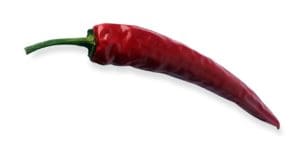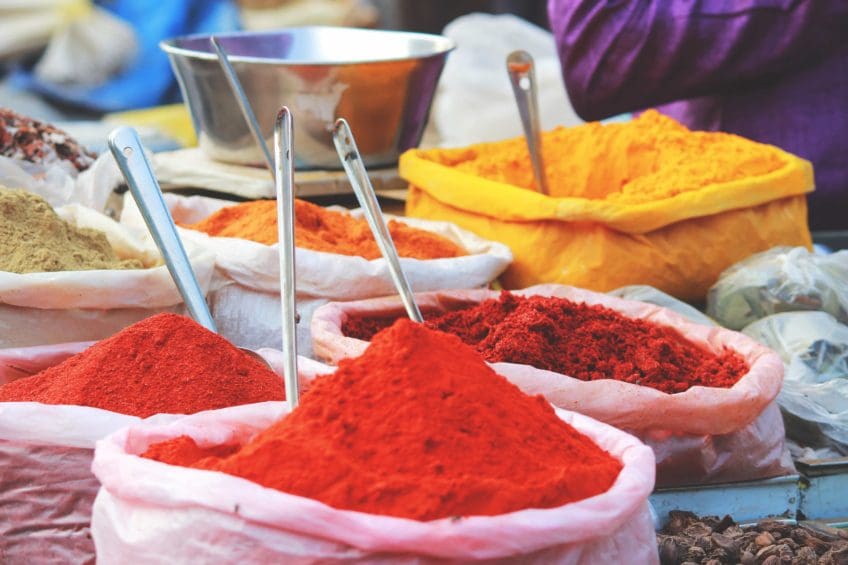3 Reasons to Spice Things Up
If you are a fan of spicy food, you will be happy to know that there is more to hot sauce and cayenne pepper than just an explosion of flavour. By adding it to your favourite dishes, you can reap the health benefits of capsaicin – the active ingredient that gives red peppers their heat.
So what’s the hype about hot sauce? Below are three reasons to spice things up.
1. Potent Antioxidant
When you think of antioxidants, foods that are vibrant in colour likely come to mind. Although capsaicin is clear in colour, it acts as an antioxidant by protecting your body’s cells. Cell damage can occur naturally as you age, but eating a diet rich in antioxidants can help lower your risk of common diseases like heart disease, diabetes, and cancer.
2. Tummy Trimmer
The pungent property of capsaicin may help with waist and weight management by curbing your appetite; therefore, resulting in reduced energy intake. You are less likely to continue eating when your mouth is on fire! A recent study showed that eating capsaicin prior to a meal reduced energy intake by 74 calories per meal. (Further studies are needed to investigate the long-term effects.)
3. Lowers Cholesterol
Cholesterol is a fat-like substance that is part of our body’s cells–foods we eat contain cholesterol, and our body also makes it naturally. Managing our cholesterol is very important because high blood cholesterol levels can increase our risk of heart disease. Consumption of capsaicin has been shown to improve heart health by reducing the amount of cholesterol circulating in the body.

How to Spice Things Up
You can easily add spice to your dishes as there are a variety of products available that contain capsaicin. To name a few:
- Fresh and dried peppers
- Hot sauce
- Cayenne pepper
There is an abundance of hot sauces available, but because of its high volume of sodium, remember that you only need a few dashes to add a kick to your meal.
Spice with Caution
You may be wondering: “How much do I need to eat to gain the benefits?” Fresh peppers, dried peppers, and hot sauce contain varying amounts of capsaicin, as different kinds of peppers are available with different levels of heat. Therefore, simply add a small sprinkle or dash to your meal.
- 1 tsp of cayenne pepper = 4 to 34 mg of capsaicin
- 1 450 mg capsule of cayenne = 112.5 mg of capsaicin
To put these numbers into perspective, individuals who ingested 2 mg of capsaicin in the study mentioned above experienced an energy intake reduction of 74 calories per meal. Although there are benefits when eaten in small amounts, there are risks associated with excessive amounts. Two studies have shown that two individuals experienced heart attacks after taking unknown doses of cayenne pepper capsules. Capsaicin-containing spices should be eaten in moderation as they may also aggravate existing acid reflux. Lastly, capsaicin has the potential to interact with prescribed medications, including stomach acid reducers and blood thinners.
Our Stance on Spicing It Up?
DO spice up your life! But keep in mind that mega doses do not equate to mega benefits.
What is your favourite hot sauce or spice?
We’d love to hear about it in the comment section below. 🙂
References
- https://www.eatrightontario.ca/en/Articles/Antioxidants/What-you-need-to-know-about-antioxidants.aspx
- http://www.eatrightontario.ca/en/Articles/Heart-Health/Facts-on-Cholesterol.aspx#.VswSPza4nVo
- http://link.springer.com/article/10.1007/s00508-012-0163-8
- http://www.ncbi.nlm.nih.gov/pubmed/24246368
- http://www.ncbi.nlm.nih.gov/pmc/articles/PMC3284873/
- https://www.sciencedaily.com/releases/2012/03/120327215605.htm
- http://www.tandfonline.com/doi/abs/10.1080/10408398.2013.772090#.VsxtLza4nVo

